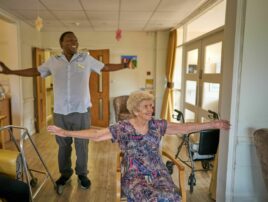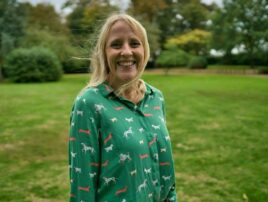Older age brings experience and wisdom to benefit the younger generations
God sets His own imprimatur on the value of older people. He instructed the people of Israel, “you must rise in the presence of an old person and respect the elderly. You must fear your God; I am the Lord.” (Leviticus 19:31 – 32).
In the cultures of both the Old and the New Testament older people were venerated. Sitting on the garbage tip outside town and remembering when he was the leading figure in the community, Job recalls, “When I went out to the gate of the city, when I took my seat [as a city father] in the square, the young men saw me and hid themselves, the aged arose and stood [respectfully]” (Job 29:7). That the most honoured in society, the elders, stood respectfully for him told Job that he was very highly regarded by them.
“The glory of the young is their strength; the grey hair of experience is the splendour of the old,” says Proverbs 20:29 (NLT). Older people and younger benefit from each other’s company. World leading expert on ageing, Professor Laura Carstensen, Director of the Standford Center for Longevity reports that, “Contrary to widespread beliefs that older populations consume resources that would otherwise go to youth, there is growing reason to think that older people may be just the resource children need.” And when troubled pupils in a failing school were befriended by pensioners both they and the school were transformed.
But that is far from the view most of our society takes today. In the UK more adults have experienced prejudice based on their age than on any other characteristic. Many companies have recognised the damage it causes and have initiated anti-ageist policies. Sometimes these policies reveal hidden, individual ageism rather than corporate. Alison, a training officer at Capita, a business consultancy, said, “In my 21 years at Capita, I haven’t experienced any age discrimination, but my own self-limiting beliefs around age have been a barrier at times.”
Unlike other prejudices, ageism is unique in targeting our future selves. We will not fulfil God’s purpose in old age unless we deal with this. We can ask God to show us if we harbour hidden negative beliefs about old age. Ageism was not a challenge to Israel’s King David, but he wanted to be sure that his thinking was healthy and pleasing to God. Writing Psalm 139, Israel’s King David pleaded, “Search me, God, and know my heart; test me and know my anxious thoughts. See if there is any offensive way in me and lead me in the way everlasting”.
To live a purpose-filled life in older age we must align our thinking with God’s: to recognise that older people are part of His plan, not some evolutionary failing. God planned our latter years to be a time of ripeness and harvest, of accumulated wisdom and experience of a life spent with Him. Older people are meant to be the elders of society, protecting and encouraging the younger.
An example of this was Sam Hailes, the editor of Premier Christianity magazine. In an editorial one month he wrote that he owed his faith today to the older people in his church. As a teenager, a turbulent time in life when some turned away, he said it was the love of the unofficial aunties and uncles and grandparents in his church that held him in his faith. Sam believes strongly that there should be more coming together of young and older generations in our churches, and in life in general.
Another example is David, a carer in Luff House, our home in Essex. He told us about Constance, an 89-year-old living in the home. Constance was the widow of a famous evangelist and had sacrificed much to support him. David had come to faith through attending, in his own time, the Bible studies she held in the home, and he had come to faith through her love and clear understanding of the Scriptures.
Points to ponder
- Ask God to search you, and see if there is anything offensive, or hurtful in your thinking, especially about His older saints.
- Reflect on your own life, and write down experiences you have had, including the sense of God’s presence at the time.
- Write how these experiences have affected you, for example, have you become more patient, more discerning, less judgemental?
- If you could go back to a teenage you, what would you tell him/her? What to warn against, and what encouragement would you give?



































